There might be affiliate links on this page, which means we get a small commission of anything you buy. As an Amazon Associate we earn from qualifying purchases. Please do your own research before making any online purchase.
We have been told since we were children that “money can’t buy you happiness.”
The fact of the matter is that this old cliche is only “mostly” true. A recent Cambridge University study shows that money can indeed buy happiness. At least up until a certain point.
The breakpoint is when money habits are no longer a major issue causing problems in people's lives. Below this financial level increased money does indeed increase happiness.
Generally, this number is set at around $50,000 dollars a year, but with improved money management, the number can be lower.
When it comes to money and happiness all we need to do is ensure that money is not the everyday problem it can sometimes be for those with lower income levels.
This better money habits guide will show you how to treat money the right way: so that it lasts and works for you. We can't help you make more money, but if you learn how to be a better saver, your money can go a lot further than it does.
As your everyday spending habits change, so will your overall financial situation. With discipline and deliberate action, you can build a few good money habits into your day that will lead to a positive impact on your financial life.
To get started with these tips, we recommend getting a “baseline” of your full financial picture. The quick way to do this is to get a free credit score (and report) from this site.
1. Minimize Credit Card Debt
Debt is not always a bad thing. Debt allows us to purchase a home while we are young enough to have years of enjoyment. Debt allows us to buy a vehicle when the upfront costs might keep us from affording one for many years.
Certain debts can be a friend, but most debts can also cause a lot of problems. Surveys show that 38.1% of American households are in credit card debt, with the median debt being 5,700 per person.
Credit card debt is specifically bad because it is not for those “big” investments like a car and home, but for stuff that could often be lived without.
Being able to eliminate debt and build savings will certainly remove some major stressors and unhappiness from your life. Therefore, the most important money habit is to simply reduce credit card debt (here are 33 ideas to help you get started).
By keeping this “optional” debt as low as possible, you reduce expenses, can increase savings, and live without the constant fear of not being able to meet lingering debt commitments
Finally, if you already have a high balance on your credit card(s), then you can use a service like Payoff to consolidate everything into one simple monthly payment that can also raise your credit score.
Creating financial SMART goals can help you clear debts faster. Learn how to create SMART goals by watching the video below:
2. Track Expenses
Tracking your expenses can be daunting because you have to be 100% honest with yourself every day about where your money is going.
However, this is the most important financial habit to have. You must be very diligent and completely honest with yourself regarding your spending.
Each evening, record everything that you and your family purchased that day. Make sure to keep all of your receipts, credit card statements, and notes so you are able to look back on each expenditure.
After you have made this list each night, write down a description of the purchase and how much it cost. You may also want to make a note saying why the purchase was made.
Did you stop to buy a bottle of water on your way home? Looking back, perhaps you could have waited 10 minutes until you got home to get some water there.
This habit needs to happen on a regular basis because it is easy to forget small purchases here and there that you make throughout the day.
After you have written down everything you have purchased that day, use a notebook or a spreadsheet program to see where you can make improvements in your spending. There are also free apps and free printable budget trackers that help track your expenses.
3. Review Your Finances on a Regular Basis
When it comes to building better money habits, “what gets measured gets managed” is a reminder that the most effective way to control your money is to review your financial situation each day.
You can start doing this by finding a tool that you like, such as Mint or a tool like Personal Capital that gives you a complete financial picture, then merge all your bank accounts into it.
You should include your credit cards, your checking account, all of your investments, and your personal assets (such as your car or home).
Log into your account daily to look over your finances. This can help you make sure every recorded purchase is valid and you are not being charged for something that you did not buy.
Additionally, it will allow you to look at the overall picture of your spending habits to see if there is an area where you can reduce your spending, or even eliminate it completely.
To learn more about this topic, read our guide to implementing a spending freeze in your life.

Knowing your spending habits will allow you to know how much money you will need in an emergency fund. Do you have enough money saved to allow you to get through six months without an income?
It is important to also consider your credit card debt here so you know you are able to continue paying off any debt that you owe, even if you have a lapse in income.
When it comes to your savings, are you earning enough interest? Have you put your money in an effective place where it is able to grow and work for you?
Perhaps you have some money in a very low-interest-bearing savings account that can be moved to a different account where it can benefit your financial situation even more.
4. Make and Review your Budget
It is important to not only create a budget, but firmly stick to it. This goes a step further than just tracking your expenses. Instead, you will have to think critically about how you are spending your money and look for ways to cut corners on your outgoing cash.
Start with a daily checkup. Review your budget every day to remind yourself how much money you are allowed to spend in each category.
Then, take 30 minutes each week to do a larger budget review where you take the time to look at the big picture of where you’re spending your money, and check to see if you have been sticking to your plan.
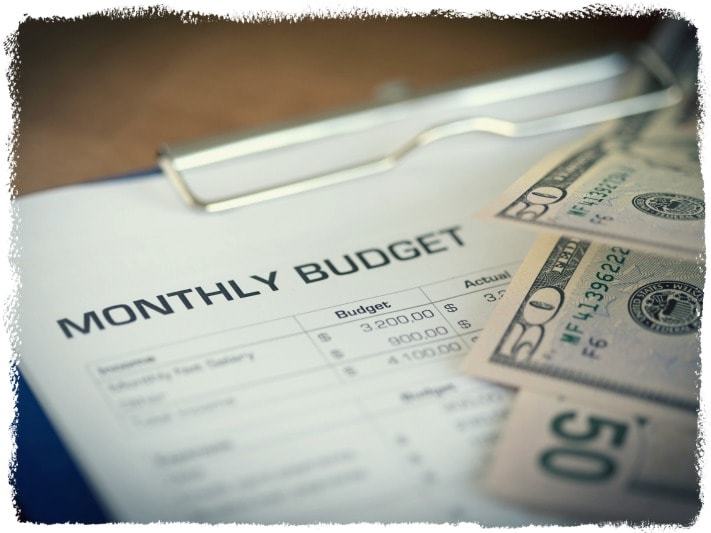
Programs like Excel and Mint can help you keep all of this information organized so you are able to reference it and track your spending. If you need a budgeting-specific tool to help you allocate how you should spend your money, check out a program such as You Need a Budget.
Here are some tips to consider when you are reviewing your budget:
5. Review Your Billing Statements
You may not notice that your Internet or cell phone bill fluctuates a few dollars every now and then. This is often due to many small charges and fees that are tacked on to your monthly billing statements.
If you take the time each month to go over your bills line by line, you will likely be able to find opportunities to reduce your bill by eliminating some of these charges.
For example, are you still paying for that sports package in your cable bill every month, even though it is off-season? Make sure that you are actually using everything that you are being charged to use.
Go through and highlight any charges on your bills that you cannot clearly determine a purpose for. If you find that you are paying a few extra dollars every month for a line item that does not make sense, call the company and try to dispute the charge.
Also, if you believe that one of your bills is too high, call the company and try to negotiate your bill. You may not be getting the best deal that they offer, or you may be getting charged for some services that you are not using.
Try to whittle your bills down to the bare minimum so you are only paying for what you actually use.
There are few better money habits than simply keeping a watchful eye on all expenses.
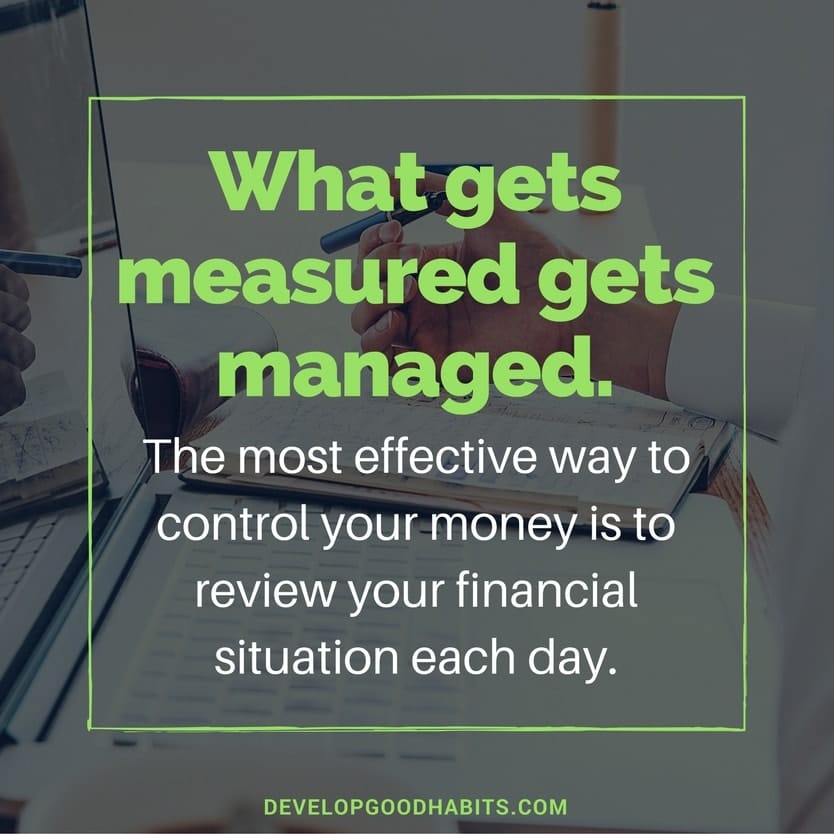
6. Negotiate Your Bills
Negotiate any bills that you can to help reduce your monthly expenditures and your debt so you can start putting more money into your long-term investments.
Because most companies do not want to lose you as a customer to their competitors, they are often likely to work with you to get your monthly bill down to a more reasonable amount.
This tactic also works because a lot of companies understand the high cost of acquiring new customers, so they want to keep the ones that they have.
If you take the time and energy to be aggressive enough to call each one of your accounts and ask for their best deal (or even for a price reduction), you may be able to save some money on your bills every month.
It is important to keep in mind that every company requires a different approach for negotiating better terms.
One type of bill that people tend to negotiate with success is medical bills. Medical debt accounts for over 1/3 of all unpaid debts in the U.S., and there are professionals whose job it is to spot errors in medical bills and negotiate down the balance.
Make sure to always do your research and keep clear records so you are able to back your argument up with facts when you are trying to whittle down a bill.
While it will take some time to reach out to every company that you do business with, the financial results that you end up with are likely to be well worth your time.
If you're a busy person, then try the Trim app, which negotiates on your behalf to lower your cable, Internet, phone, & medical bills, plus it helps you eliminate those unwanted subscriptions.
7. Use Coupons for Necessities
Getting better money habits is not always about avoiding spending money entirely.
There are some products that you have to buy, regardless of how much they cost. Items like toilet paper and toothpaste are going to end up in your grocery cart every few weeks, no matter what.
It can be very beneficial to keep your eye out for coupons for these items that you can use whenever you need to make a necessary purchase.
Look through your daily newspaper or visit some online couponing websites (this is my favorite couponing resource) to find the deals and coupons that are currently running for necessary household items.
If you find a valuable coupon, go ahead and clip it or print it and stick it in your wallet so it will be on hand when you go to purchase the product.
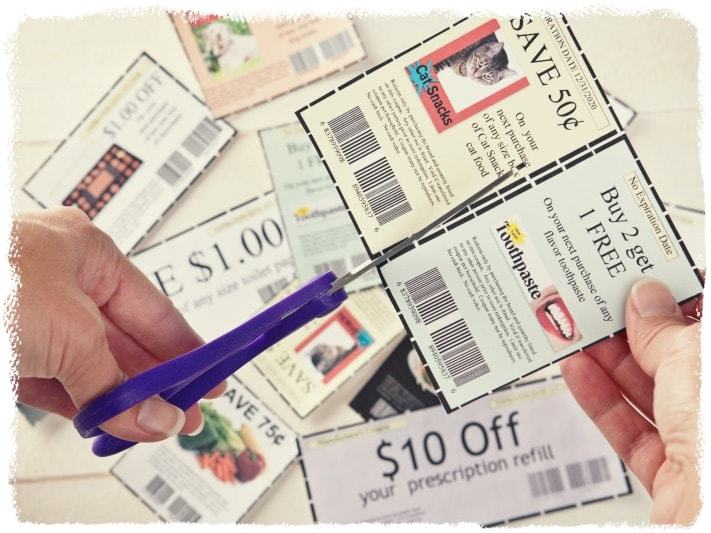
A money habit like couponing will give you great returns over time. The more time and effort you put into couponing, the more money you will be able to save.
Here are a few tips if you want to get the most out of coupons:
8. Conserve Your Utilities
Sure, it may be easy to walk out of a room and forget to turn the light off. However, making the effort to turn off your lights and appliances when they are not being used in your home, office, or apartment can help save you a significant amount of money when it comes to your monthly utility bill.
Getting in the habit of turning off your electronics is not only easy, but it also helps the environment.
There are a few extra things you can do each day to really benefit from this and get the most out of your efforts:
9. Pack a Meal, Snack, and Coffee
Buying a snack may seem like an inexpensive thing, but spending money on these small things every day really adds up.
Make your meals at home, and pack a snack and coffee every morning rather than spending the money to buy these things on the go. This will also help you to make healthier dietary choices because you won't be stuck with oversized portions at a restaurant or deli.
Author David Bach refers to this as “the latte factor,” meaning that a simple way to save money is to eliminate those small, recurring purchases that add up to a substantial amount of cash.
Invest in a good coffee mug that is easy to grab before leaving the house and won't spill. Making a one-time purchase for a quality mug will quickly pay for itself if you are not spending money on coffee every day at coffee shops.
For snacks, buy foods in bulk at the grocery store and portion them out each Sunday so they last you through the week. Also, consider planning out your dinners for the week so you can count on having leftovers to bring with you to work for lunch.
To make sure you don't forget your snack or lunch at home in the morning, put your keys in the refrigerator on top of what you want to bring with you so you will have to see it before you leave the house in the morning.
If you also want to incorporate some “health” into your snack and food packs you may want to use some simple portion control containers for your, “on the go” eating.
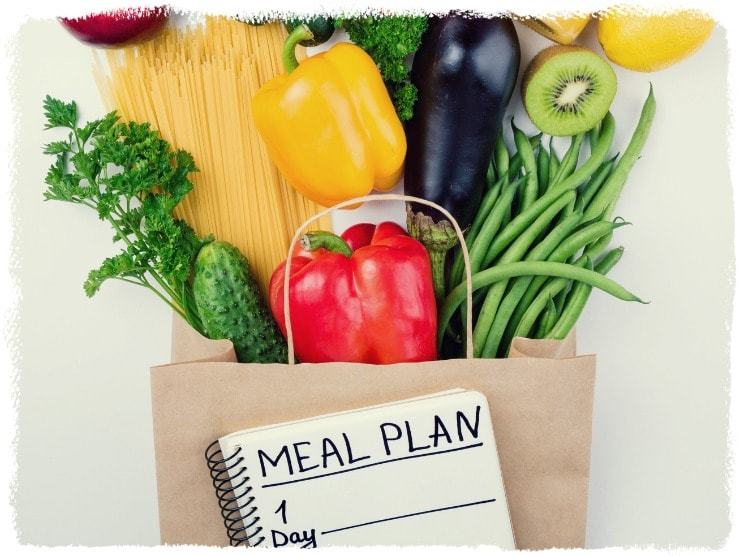
10. Follow “Garage Sale” Facebook Groups
It is true that one man's trash is another man's treasure. People often pay full price for items such as furniture or decorations, just to quickly change their minds and turn around and sell them.
And if you have children, you know how quickly they grow out of expensive retail-priced clothing.
To help dramatically reduce this expenditure, look through local Facebook groups to see what gently used items are being sold by your neighbors.
Join any garage sale groups that are in your area and browse through the listings throughout the day. It is easy to find groups that specialize in selling and swapping specific items that you may have a need for.
Here are five steps to finding groups in your area:
11. Buy for Value
Remember that you will never love an item as much as when you first see it in the store. This means that if you try something on and you think it is just ok, you are not likely to go home and end up liking it any more than you initially did.
Choosing quality over quantity when you are making purchases is the best way to prevent yourself from experiencing buyer’s remorse. If you only buy high-quality items, every time you look back on the things you have purchased, you won’t feel regret spending money on something you don't love.
To take this a step further, you can consider all of your purchases to be investments. If you know you will use an item frequently, or you know you will have it for a long time, then it makes sense to invest some money in it and choose the best, most durable option.
This can include clothes, electronics, food, furniture, and appliances. But you can also apply this logic to items that you would typically think of as investments, such as your home and car.
Alternatively, if you need to buy something that you know you will only use once, such as a plain white tee shirt for a volunteering event, go ahead and buy something cheap that you can throw away after you use it.
This habit can take some time to master, but you should try to think carefully about the long-term consequences of each item that you’re purchasing.
If you always buy the cheapest option while you are shopping, it will likely break or be defective, which will mean you will have to go out and make a second purchase of the same item.
You don't want to waste money on a cheap item only to have to spend more money to replace it. The better option is to buy durable items that will last, so you do not need to buy the item again after only a few months.
If you are not sure how to tell what items will give you the best bang for your buck, purchase access to the Consumer Reports website. This is known to be the best resource for testing out products and giving them reviews and rankings on a wide range of factors.
This way, you will also not be wasting money buying the most expensive item thinking that the price correlates to the quality. Often, the best value can be found somewhere in the middle.
12. Comparison Shop for a Major Purchase
Do your research before making a major purchase by comparing prices on different websites. The bigger and more expensive the purchase, the more important it is to spend time researching your options.
Not only will this save you money, it will also help you make a better-educated decision when it comes to purchasing the item.
To start comparison shopping, choose the item that you need to buy and look at the item's listing on at least three different retail websites.
Remember, take the time to do your research in Consumer Reports so you can see what other purchasers have to say about the item. Look for the different features, details, availability, and price of the item to see which website is offering the best deal.
Beware. As your financial situation improves and you have more ready cash, it is common to get what they call, lifestyle creep. This is where, due to an improving financial situation, you begin to spend more money on frivolities and make more purchases than you had when you had less money and were more thrifty.
Remember: Extra money doesn't mean buy more, but gives you the option to save more.
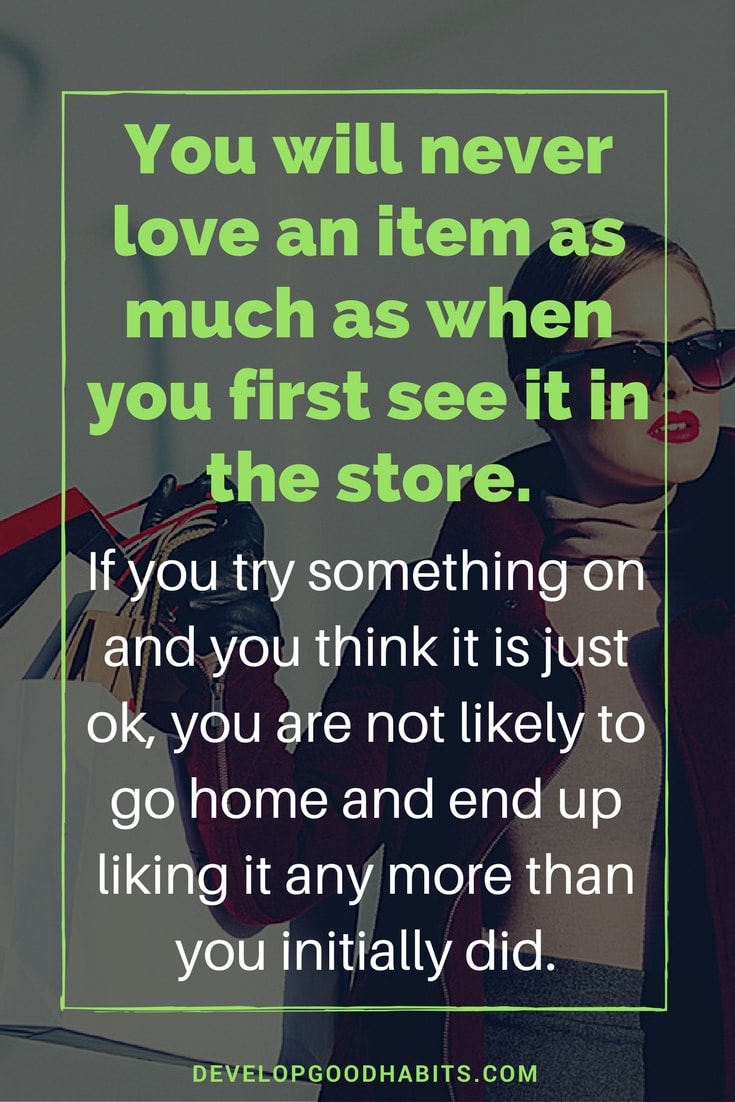
This isn’t just for physical purchases. You should also put some time into comparison shopping for things like vacations, insurance rates, and credit card points programs.
Also, don't forget to look at the negative ratings of the item as well to see what people didn’t like about it.
If you find a pattern in a negative rating, make sure that you take their opinion into strong consideration before making the purchase. Will their complaint affect what you are looking for in the product? This will help you get an accurate picture of what it will be like to own this product.
If you want to be really thorough, create a spreadsheet to list and compare the major features of the items that you are considering the most. With all of the data right in front of you, you will be better equipped to make the best decision.
There apps that help you save money when shopping online. For example, the Honey browser extension automatically finds you savings when you shop online.
Taking the time to do your research can lead to serious savings down the road.
13. Avoid Emotional Spending
Much of modern-day sales techniques revolve around getting people to buy things that they don't need or want but feel that they have to have at the moment.
This is is why there are often chocolates and candies right near the checkout in grocery stores. These sales appeal to the emotion in you. “I need chocolate”. When perhaps chocolate had been the farthest thing from your mind until you saw it in the checkout line.
Emotional spending is also the result of many of the sales pitches and is often a big addition to final costs.
Let's look at the iPhone for example. Most tech-savvy people will tell that although the iPhone is decent, there are almost always better options tech-wise that also cost less than the current model of the iPhone.
All the ads and your friends buying the iPhone may convince you that getting one is the best option. But if you had taken the time to think things through you may have decided you didn't need a new mobile device at all or at least spent less money for a brand that does just as much.

14. Plan Your Meals
Without planning ahead of time, people often turn to fast food or impulse buys which are poor financial decisions that also negatively affect their physical health.
If you do not take the time to think about how you are going to fuel your body throughout the day, you are likely to wait until the last minute and end up making a quick stop for a burger and fries. It is easy to buy whatever is immediately accessible when you get hungry, and chances are, it is not healthy.
You can prevent this from happening by taking time every Sunday to plan your meals out for the rest of the week. Each Sunday, go through your schedule for the week and identify how many meals you will need to eat at home and how many you will need to eat out.
Then, see where you can overlap meals by eating leftovers for lunch from the dinner before or buying one ingredient to use in two different meals. Look up the ingredients you need and shop for the best deals on them so you can make healthy and inexpensive meals at home.
There are a lot of resources for learning how to meal plan, but one of the best is a website called Emeals. This site offers ideas for your special dietary needs, meal plans, grocery shopping lists, and a simple interface to order groceries from your local supermarket. (Read our full review of Emeals here.)
15. Stick to the List
When you think about improving your money habits, following a food list may seem obvious. How hard is it to make a shopping list and stick to it?
But it is also easy to wander the aisles of the grocery store and add things into your cart that look good at the time, but that you don't really need.
Creating a habit of only shopping for items that are on your list will help you decrease the likelihood of wasting money on junk food that you don't really need. This will help both your wallet and your waistline.
Before you go to the store, look in your refrigerator and review all of the meals that you have planned for the week. Make a list of only the items you don't already have in your kitchen so you know you will not end up with excess ingredients or other things that you don't need.
It is also a good tip to never go to the grocery store when you are hungry. When you are hungry, you will naturally reach for the foods that are more calorie-dense so your mind will think that your body will get the nutrition that it is craving.
You are unlikely to reach for a head of lettuce over a piece of pizza in the grocery store if you haven't eaten in hours.
Going grocery shopping while you are hungry will not only increase the chances that you will buy unhealthy food, but it will also increase the amount of food that you are likely to buy that you do not really need.
Many people spend far too much of their hard-earned money buying things at the last minute. Often as they see things waiting in the checkout line. This impulse buying can be difficult to overcome.
But if you ONLY shop by lists, and tell yourself you can add the “impulse buy” item to the next list if you really want it, the “cool off” time will often show you that you never really wanted the item in the first place.

16. Plan Your Errands Each Day
Planning out your errands every day is similar money habit to reviewing your daily budget. It keeps you on track and in control of your spending. It also prevents you from wandering into expensive stores that are selling things that you do not need to buy.
Planning out your errands for the day will also allow you to map out the most efficient route for getting everything accomplished. This will help save you time, gas, and money.
To plan out your day, start by writing down everything that you need to get accomplished. Then look at the list and group together errands that are located near each other, and plan to do them together.
Consider the most logical route so you are not backtracking throughout the day or driving to an area of town more than once.
Stick to your list so you don't end up going into stores that you did not initially intend to go to. This will help you save time and money as you complete your tasks throughout the day. Wandering aimlessly through stores without a purpose is likely to lead to an impulse buy that you may regret.
17. Hit “Unsubscribe”
Receiving constant notifications of sales and promotions is likely to lead to excess spending. Remember, having the opportunity to save $20 on your next unnecessary purchase of $100 is really just wasting $80 that you never intended on spending.
While it is great to look for sales when you need to buy something, don't buy something just because it is on sale. Don't let yourself be tempted by catalogs that come in the mail offering you “huge savings,” because they also often lead to huge spending.
There are a few ways you can begin to cut down on the junk mail that you receive. Get started by using a service like Catalog Choice, which eliminates most promotional mailings.
It may take a month or so for various companies to stop sending you junk mail, but it will eventually stop. You can also use the following steps to make sure you’re completely off of mailing lists:
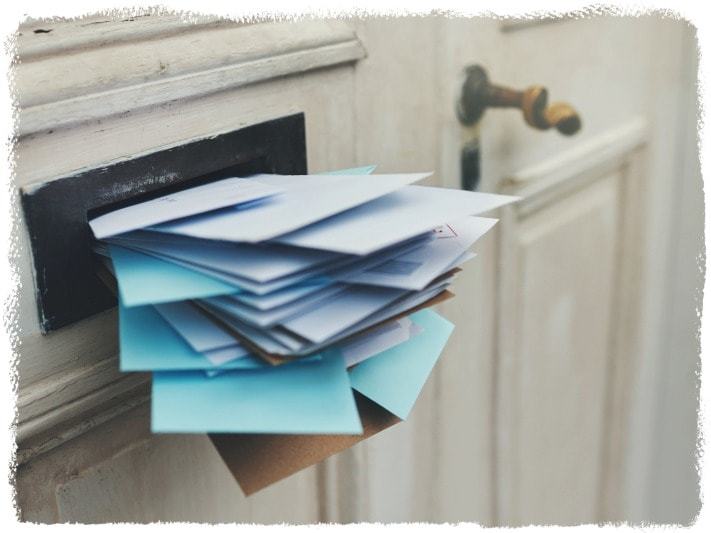
18. Look Into Free Activities
When it comes to better money habits, being able to have your FUN for FREE is a huge win. We all deserve downtime and the ability to relax and have fun, when you can do this and spend little (or nothing) it is a huge win.
Consider instead researching free activities in your area and substituting them for some of those expensive nights out. This way, you can enjoy doing something fun with your friends or family without it negatively impacting your bank account.
Dedicate some time every week to looking through your local paper or community calendar to see what is going on in your area. Choose a few activities that interest you, and run them by your friends to see what you can all get together and do for fun.
Remember, as long as you surround yourself with the company you enjoy, it doesn't matter how expensive your experience is.
Look into the parks in your area for free concerts that are offered around your neighborhood. Pack a picnic with some friends and share dinner together while listening to live music. You can make some great memories and meet new people around your town if you stay up-to-date on what is going on.
19. Avoid Watching Commercials
Whether you realize it or not, you are constantly being exposed to advertisements throughout the day. Don't make this even worse by spending your time watching commercials that can have a negative impact on your spending habits.
When you see a clever commercial on television, you are likely to feel like you need whatever is being promoted, when you actually don't.
To help save yourself time and money by avoiding commercials, record all of your favorite television shows ahead of time and watch them later. This way, you can fast-forward through the commercials.
If you want to take this a step further and save even more money, go ahead and cancel your cable subscription. You can still have access to entertainment through devices such as Roku, Kodi, or Amazon’s Fire TV Stick without paying the monthly subscription for cable.
Commercials can be an especially tricky trap if you have children who watch television. Limit the amount of television that your children watch, and try to make sure that they only watch programs that do not have commercials.

20. Set Up Automatic Withdrawals
While you have likely heard that you should pay yourself first, the probability that you are actually doing that is small.
Are you putting your long-term investments ahead of your weekly groceries? Probably not. A simple solution to this is to set up automatic withdrawals and review these transactions each month.
Setting up automatic withdrawals is a way for you to save money without having to put any effort or thought into it. The money will just be taken out of your checking account each month and put into an account where it can accrue some interest.
This will leave you no room for excuses about why you need to keep your cash for something else. (You can even use an app like Acorns that will automatically invest your spare change into an investment account.)
You are likely to find that when money is automatically pulled from your account, you hardly notice, and are able to adjust your spending accordingly.
The interest that you are paying on your debt is likely higher than anything you will gain from a savings account.
Once your debt is paid off, set your SMART financial goals for each category of your life (e.g., your college savings, your retirement, and your investments), and schedule automatic withdrawals from your bank account to match these outcomes.
Make sure that you time withdrawals so the money is taken out of your account as soon as your paycheck is deposited. This prevents you from feeling like you had a chunk of money that went missing.
Each month, go through your bank statements to see where you can make any adjustments to save even more money to meet your goals faster.
Alternatively, if you find that you are running out of money at the end of the month, lower your withdrawal amount until you are able to get back on track.
21. Read a Personal Finance Article
Don't ever stop educating yourself, especially when it comes to personal finance.
Improving your money habits is something you may want to tweak from time to time. There may be new thoughts on personal finance, and ultimately opportunities to earn money.
Continue to listen to personal finance podcasts, read articles (like this one) and scan the most current personal finance articles. If you don’t have too much time to devote to this, try to read personal finance article a day.
This is not an overwhelming amount of reading, but it will greatly improve your money habits.
Some great money websites to get started are:
If you want to be able to see the most recent highlights from each of these websites, download a Feedly account and add these sites to your feed so you can scroll through it during a regular stack.
22. Wait 30 Days Before Buying Your Wants
One of the keys to better money habits is the 30-day rule. This rule is an effective way to control impulse spending.
Whenever you feel the urge to buy something that you don't need, stop and put the thought aside.
For example, imagine seeing a jacket in a store and thinking to yourself that you just have to have it. Put it back on the shelf and leave the store without purchasing it. Instead, write the details of the item down on a piece of paper.
Post this note somewhere that you will see on a regular basis to give yourself a chance to reflect on the item for 30 days. If you still want the item after a month of thinking about the purchase: buy it. Otherwise, leave it behind.
23. Work on Your Time Management
Time is an asset you can never replenish. Once it is gone, it is gone forever. Time is your biggest asset, so it is essential to use it well.
Here are some time management tips to increase your productivity:
To make the best use of your time, set your long-term priorities and goals and live every day pursuing them.
Watching television or playing video games is not likely to help you achieve your long-term goals, so don't spend all of your time on these activities. Rather, continue to educate yourself by reading, and make sure to take care of your body by eating healthy and exercising.
24. Plan for Your Retirement
While retirement may seem like a long way away, the later you start planning for it, the more catching up you will have to do. Start saving money at a young age so you can give it time to grow without having to make sacrifices in the future.
Get familiar with websites such as Investopedia early on so you don't feel intimidated by the greater financial world. These sites offer financial advice and current market trends so you are able to stay on top of what is going on in the financial world.

25. Find an Accountability Partner
If you are not married, find a trusted friend or family member to help keep you financially accountable.
This person can help you create your goals and check in with you from time to time to see the progress you are making. This person can also act as a sounding board before making big purchase decisions.
Here are some tips for picking an effective accountability partner:
26. Keep Reading about Finance
Finance is an interesting topic. When you first begin reading about finance it is mostly about how to save little chunks of money and spend less.
At this point better finance habits are easy, because there is so much that can improve your money management.
Then finance progresses to tips for saving money and the rudiments of investing. At this point, better money habits become a little bit more complicated.
Utilizing stock market investing, investing for retirement, real estate investment, and many other forms of financial help you make your money grow.
My recommendation is to keep on top of finance. Check out some of the new money books. When a new money book comes out, check it out. It may have fresh tips, it may not, but at least it will give you a refresher on the popular money tips you have read about in the past.
Here are some of the great books on money and investment that you may enjoy. Organized into lists to make finding the “right” finance books a little bit easier.
Better if you want to be able to increase your savings and income without finding a new career. Turn some of these tips into daily habits. Not only will they help you save money, but many of them will help you lead a healthier life, both physically and mentally.
If you are unsure of how to create new habits. check out this simple 8-step guide to creating new habits that last.
Make sure that you review your finances on a regular basis, and stay on top of current sales/income while also limiting your unnecessary spending. If you live below your means, you will be able to accrue wealth over time. It is just up to you how aggressive you want to be. in making your money work for you.
Final Thoughts on Better Money Habits
How are your personal money habits? Do you have millionaire habits? Did you know most of the tips on this list? Or are your personal finances a mess that needs some work? Can you make improvements for better money habits?
If you want a simple way to get started with these tips, we recommend getting a “baseline” of your full financial picture. The quick way to do this is to get a free credit score (and report) from this site.
Once you figure out your starting point and know your goals, having a vision board for your financial freedom may also help.
Finally, if you need help with building habits, then check out this nine-step blueprint that walks you through the entire process of creating lifelong habits.)


